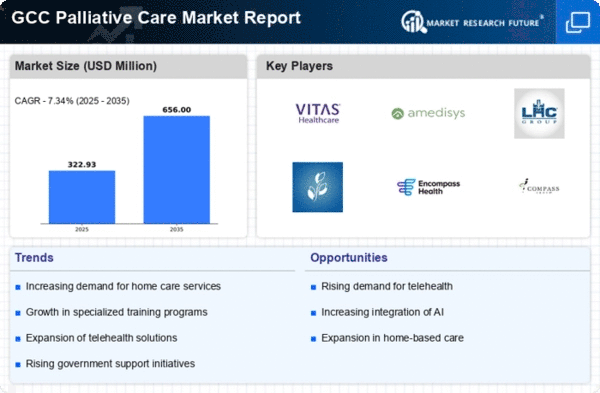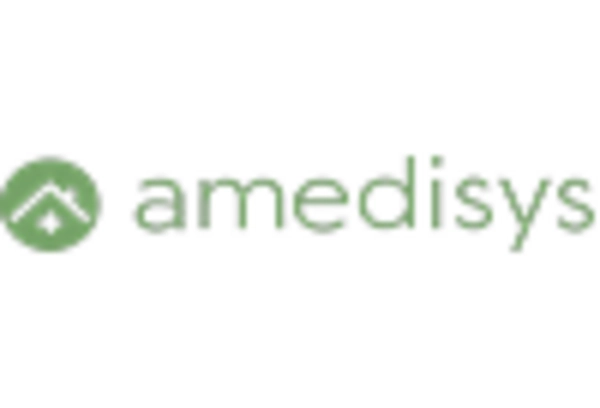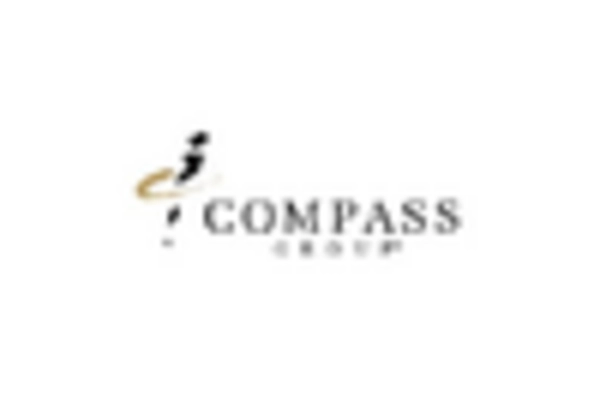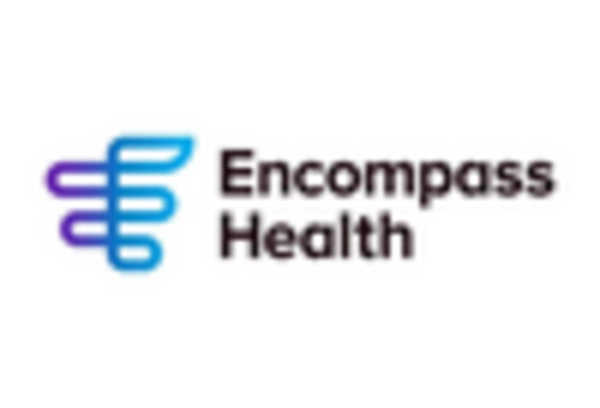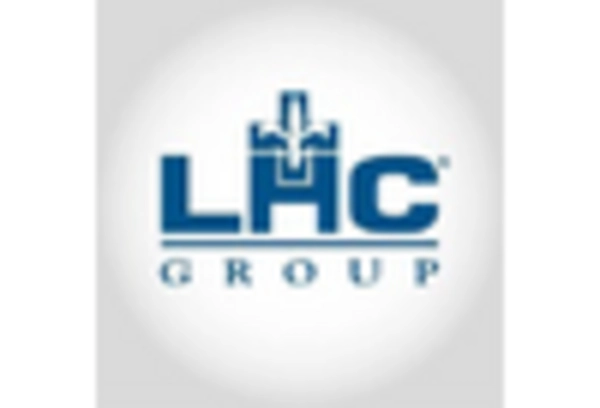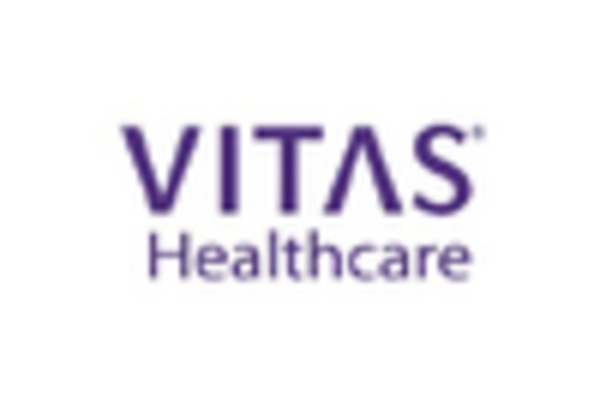Rising Aging Population
The palliative care market is experiencing growth due to the increasing aging population in the GCC region. As individuals age, they often face chronic illnesses that necessitate specialized care. By 2025, it is projected that the number of individuals aged 65 and older in the GCC will rise significantly, leading to a higher demand for palliative care services. This demographic shift indicates a pressing need for healthcare systems to adapt and integrate palliative care into their offerings. The aging population is expected to drive the market, as families seek comprehensive support for their elderly members, thereby enhancing the overall palliative care market.
Advancements in Medical Technology
Technological innovations are playing a crucial role in shaping the palliative care market. The introduction of telemedicine, remote monitoring, and digital health solutions is transforming how palliative care is delivered. In the GCC, healthcare providers are increasingly adopting these technologies to improve patient outcomes and enhance the quality of care. For instance, the use of telehealth services has been shown to increase access to palliative care, particularly in remote areas. This trend suggests that advancements in medical technology could significantly impact the palliative care market, making it more efficient and accessible for patients and families.
Government Initiatives and Policies
Government initiatives aimed at improving healthcare access and quality are influencing the palliative care market. In the GCC, various governments are implementing policies that promote the integration of palliative care into national health strategies. These initiatives often include funding for palliative care programs and training for healthcare professionals. For example, the allocation of resources to enhance palliative care services is expected to increase by 15% over the next few years. Such government support is likely to bolster the palliative care market, ensuring that patients receive the necessary care and support during critical times.
Shift Towards Patient-Centered Care
The palliative care market is witnessing a shift towards patient-centered care, which prioritizes the needs and preferences of patients and their families. This approach is becoming increasingly important in the GCC, where healthcare systems are focusing on holistic care models. By emphasizing communication, shared decision-making, and personalized treatment plans, healthcare providers are enhancing the patient experience. This shift is likely to drive the demand for palliative care services, as patients seek care that aligns with their values and goals. As a result, the palliative care market is expected to evolve, adapting to these changing expectations.
Growing Awareness of Palliative Care
There is a noticeable increase in awareness regarding the importance of palliative care among healthcare professionals and the general public in the GCC. Educational campaigns and community outreach programs are helping to demystify palliative care, emphasizing its role in improving the quality of life for patients with serious illnesses. This growing awareness is likely to lead to an increase in demand for palliative care services, as more individuals and families recognize the benefits of such care. Consequently, this trend is expected to positively impact the palliative care market, driving growth and expansion.


